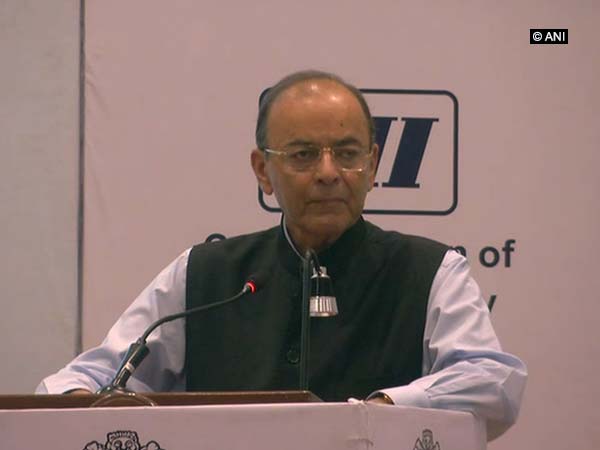New Delhi: Raking up the controversy around the 2G spectrum allotment which happened under the UPA government in 2007-08, Finance Minister Arun Jaitley on Monday alleged that the process was rigged.
Speaking at the launch of Competition Commission of India’s one-day roadshow event, Jaitley said: “If you look at the spectrum case beyond other controversies, one of the issues was whoever comes first satisfying the Letter of Intent (LOI) conditions will be the preferred party. The people would sprint first to the 7th or 8th floor and when rivals came, lifts stopped working. There were also obstructionists standing in car parking area.”
The alleged spectrum scam, according to a report by the Comptroller and Auditor General of India, incurred a loss of Rs 1.76 lakh crore to the public exchequer. On October 9, the Delhi High Court fixed next hearing of a Central Bureau of Investigation (CBI) appeal challenging the acquittal of former Telecom Minister A Raja, DMK MP Kanimozhi and others in the 2G spectrum allocation case to February 7, 2019. The CBI has challenged the Patiala House court’s ruling which had acquitted all the accused in the case.
Iterating the importance of the Competition law, the Bhartiya Janata Party Member of Parliament said that in the last two decades, four legislations altered the commercial jurisprudence of which Competition law was the first.
Stressing the irrationality of first come first serve basis of allotting the public contracts, he stated, “Mining laws were drafted, whosoever puts application first gets the first right to mine. In the 1990s when there was a monopoly on television, there were huge queues to fetch the broadcast of Doordarshan. The fear of contract mafias, especially in Uttar Pradesh, was so rampant that nobody would come to bid. But, the advent of digital board eliminated all of this. Luck was given precedence over competence. Is it rational?”
Further adding that fairness and competition ensure quality, he said, “Multiple players in the market ensure larger consumer interest. In this model, the whims of the state are not permitted. Public procurement is a very large part of the Gross Domestic Product (GDP). The fairness and transparency allows state to fetch better quantity and quality. It also ensures state revenues are used up for welfare purposes. The global challenge in low-cost manufacturing and services is shifting to emerging or developing economies.”
[source_without_link]ANI[/source_without_link]

